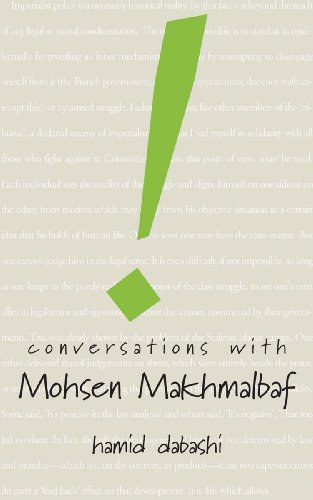

Most ebook files are in PDF format, so you can easily read them using various software such as Foxit Reader or directly on the Google Chrome browser.
Some ebook files are released by publishers in other formats such as .awz, .mobi, .epub, .fb2, etc. You may need to install specific software to read these formats on mobile/PC, such as Calibre.
Please read the tutorial at this link: https://ebookbell.com/faq
We offer FREE conversion to the popular formats you request; however, this may take some time. Therefore, right after payment, please email us, and we will try to provide the service as quickly as possible.
For some exceptional file formats or broken links (if any), please refrain from opening any disputes. Instead, email us first, and we will try to assist within a maximum of 6 hours.
EbookBell Team

4.4
52 reviewsBorn in Tehran in 1957, filmmaker Mohsen Ostad Ali Makhmalbaf grew up in the religious and politically charged atmosphere of the 1960s, and the June 1963 uprising of Ayatollah Khomeini constitutes one of his earliest memories. In 1972, Makhmalbaf formed his own urban guerrilla group and two years later attacked a police officer, for which he was arrested and jailed. He remained incarcerated until 1978, when the revolutionary wave led by Ayatollah Khomeini freed him and launched his career as a writer and self-taught filmmaker. Since then, Makhmalbaf has gone on to make such highly admired films as Gabbeh and The Silence.
The three lengthy conversations collected here, between Makhmalbaf and leading Iranian film critic and scholar Hamid Dabashi, traverse the filmmaker’s experiences as a young radical, his critical stance regarding the current Islamic regime, and his fascination with films—both as product and as process. In this in-depth view of one of the most significant Middle Eastern filmmakers of our time, Makhmalbaf reflects on the relationship between cinema and violence, tolerance, and social change, as well as the political and artistic importance of the autonomy of the filmmaker.